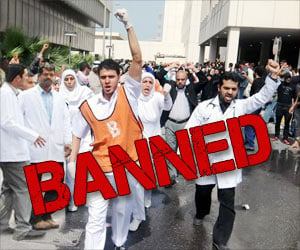
‘The NHS doctors' strike is over a new type of contract which the government says will improve healthcare at night and at weekends but medics say would drastically reduce their pay.’
Tweet it Now
Florence Dalton, 29, a psychiatrist picketing at St. Pancras hospital in central London, said, "The new contract is not fair, it's not safe and from the beginning, we as a profession have been bullied, intimidated and threatened by the Department of Health. Many workers in the state-run National Health Service (NHS) feel exhausted, overstretched and undervalued. Staff are already leaving in their droves. Fewer and fewer people are coming into the profession. It makes me so angry." Doctors on several picket lines in London were joined by a choir of NHS doctors and nurses who took 2015's Christmas number one spot in Britain's pop charts ahead of Justin Bieber with a charity singer.
On Monday, January 11, 2016, British Prime Minister David Cameron appealed to junior doctors to call off what he said was an unnecessary strike which would cause 'real difficulties' to the NHS. His government says the reforms are needed to help create a 'seven days a week' NHS where the quality of care is as high at the weekends as on weekdays.
The NHS has so far postponed 4,000 routine treatments due to the strike.
A further 48-hour stoppage is due to take place on January 26, 2016, while on February 10, 2016, there will be a full withdrawal of labor from 0800 GMT to 1700 GMT.
Advertisement
It is widely respected in Britain, with pollsters YouGov rating it the institution which the most people view positively.
Advertisement









